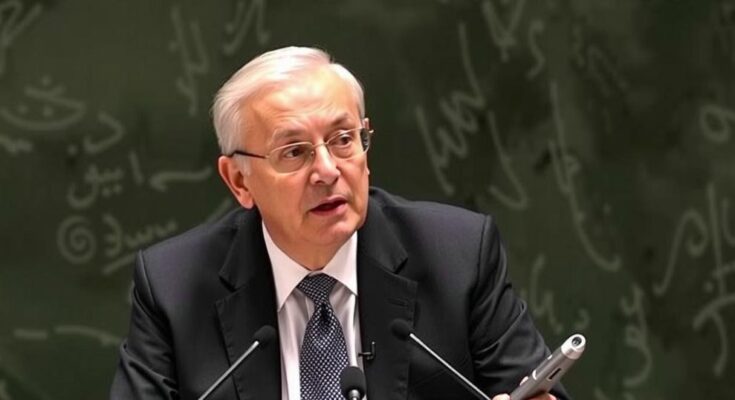Pakistan has started its two-year term as a non-permanent member of the UN Security Council, replacing Japan. This is Pakistan’s eighth membership at the council, which allows it to influence discussions on terrorism, particularly related to threats from Afghanistan. The term ends on December 31, 2026.
Pakistan has commenced its two-year tenure as a non-permanent member of the United Nations Security Council (UNSC). Elected in June of the previous year, Pakistan succeeded Japan as one of the representatives for the Asia-Pacific region, officially starting its responsibilities on January 1, 2023. On January 2, 2023, the UNSC conducted a ceremony to raise the flags of its new non-permanent members, which includes Pakistan, alongside Denmark, Greece, Somalia, and Panama. The event was attended by Mr. Asim Iftikhar Ahmed, Additional Permanent Representative of Pakistan to the United Nations.
This marks the eighth occasion that Pakistan has held a position within the Security Council. As a member, Pakistan will now also participate in the Islamic State (IS) and Al-Qaeda Sanctions Committee, which is tasked with identifying and sanctioning entities associated with terrorism. Such a position provides Pakistan with a significant opportunity to draw attention to the threats posed by cross-border terrorist activities originating from Afghanistan, particularly by groups affiliated with IS and al-Qaeda.
Furthermore, Pakistan is expected to leverage its new role to advocate for addressing terrorism risks emanating from Afghan territories, including concerns regarding Tehreek-e-Taliban Pakistan. The country’s membership may also facilitate efforts to challenge India’s claims over Jammu and Kashmir within international discussions. Pakistan’s participation will enhance its influence in setting the agenda of the Council and shaping the proposals presented during its tenure. The two-year term will conclude on December 31, 2026.
The United Nations Security Council plays a pivotal role in international peace and security, with both permanent and non-permanent members responsible for various legislative and decision-making functions regarding global issues. Non-permanent members serve terms of two years and are elected to represent different regions around the world. Pakistan’s re-election as a non-permanent member reflects its active engagement in international diplomacy and its position within the Asia-Pacific region. This membership offers Pakistan an opportunity to contribute to discussions and actions regarding global security concerns, particularly those linked to terrorism and regional conflicts.
In summary, Pakistan’s recent accession to the United Nations Security Council as a non-permanent member is a significant development in its diplomatic efforts. The country’s engagement on the UNSC will allow it to address critical issues relating to terrorism, particularly the threats posed by groups operating from Afghanistan. Additionally, Pakistan aims to use this platform to influence discussions surrounding regional conflicts, notably the situation in Jammu and Kashmir. The upcoming two years will be crucial for Pakistan to assert its diplomatic priorities and shape international perceptions of its security concerns.
Original Source: www.afintl.com




